| | Home | Resources | Schools Programme | Teachers | Site help | About us | Contact us | |
| You are here: Home > Resources >The Union of 1707 > Negotiating the Articles for Union |
Negotiating the Articles for UnionIn the early 18th century, a 'treaty' was a negotiation, and commissioners or 'treaters' for England and Scotland were nominated to meet in London to agree the foundation for a union. To the astonishment of many, the Duke of Hamilton, leader of the Country Party, proposed that the Queen rather than Parliament, should nominate the men to treat for union. This ensured most would be pro-union. The exception was the appointment of George Lockhart of Carnwath, a well-known Jacobite member of the Scottish Parliament and a Lowland laird. The appointment of Commissioners to negotiate terms | ||
The appointment of Commissioners to negotiate termsThe Queen appointed Scottish and English commissioners to undertake this task. They met for the first time in April 1706 in the Council Chamber in the Cockpit at Whitehall. Among the Scottish commissioners present were the Earl of Seafield, the Duke of Queensberry, the Earl of Mar, the Duke of Argyll, John Clerk of Penicuik, and George Lockhart of Carnwath. Among the English commissioners present were the Earl of Godolphin, Robert Harley, Lord Wharton and Lord Somers. The two sets met separately and communicated only in writing. 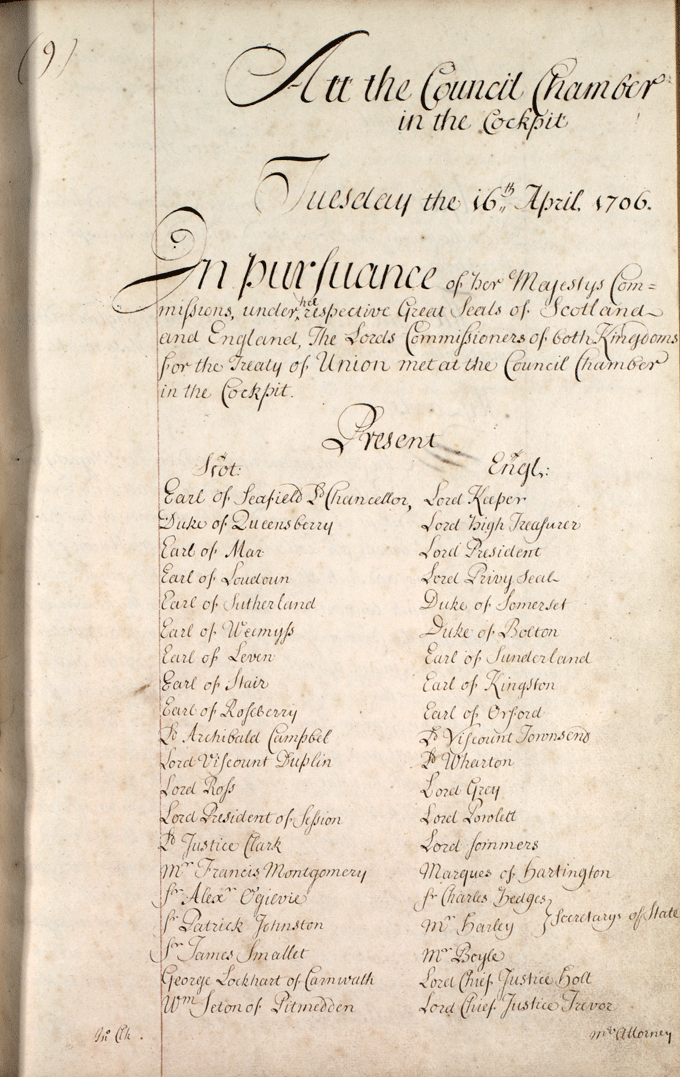
(National Records of Scotland, Journals of the Commissioners for Union, PA18/2 p.9) |
||
The first meeting of the CommissionersThe Lord Keeper of the Great Seal of England welcomed the Scottish commissioners to London on 16 April 1706 with the following speech. My Lords 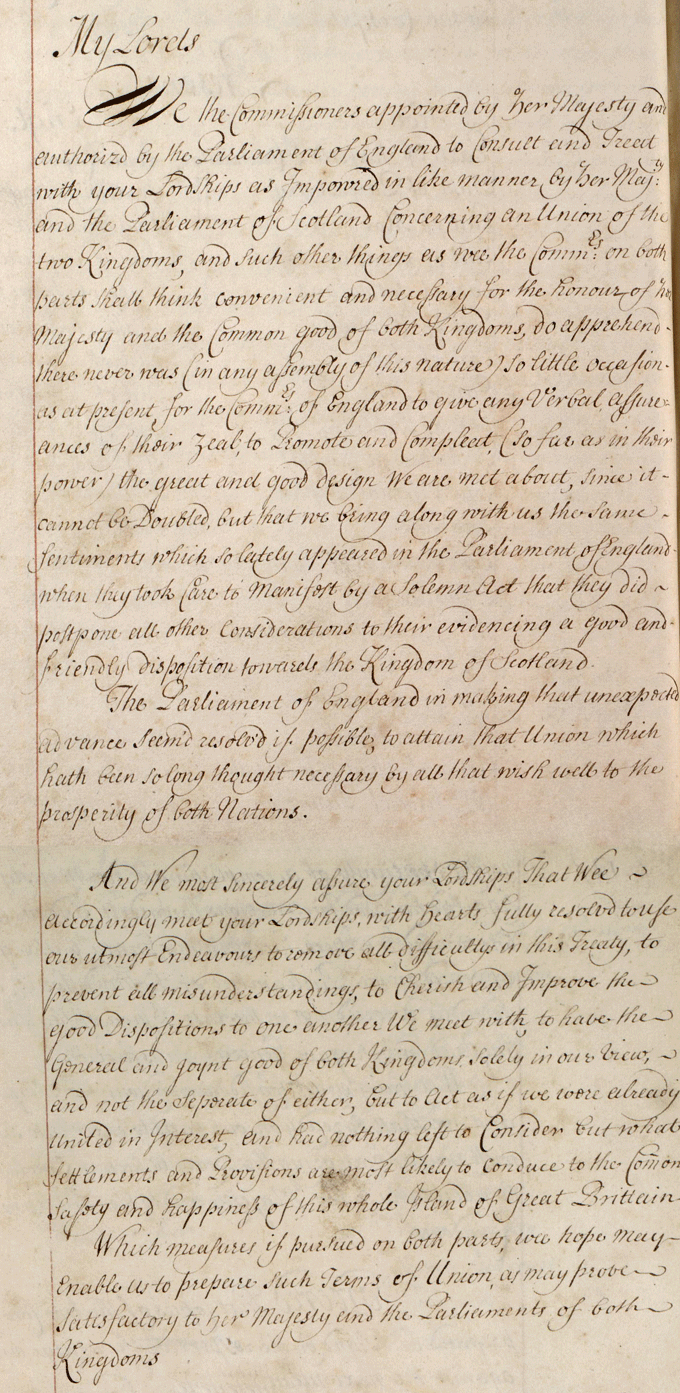
The Earl of Seafield, Lord High Chancellor of Scotland, replied to the English commissioners on behalf of his colleagues. My Lords 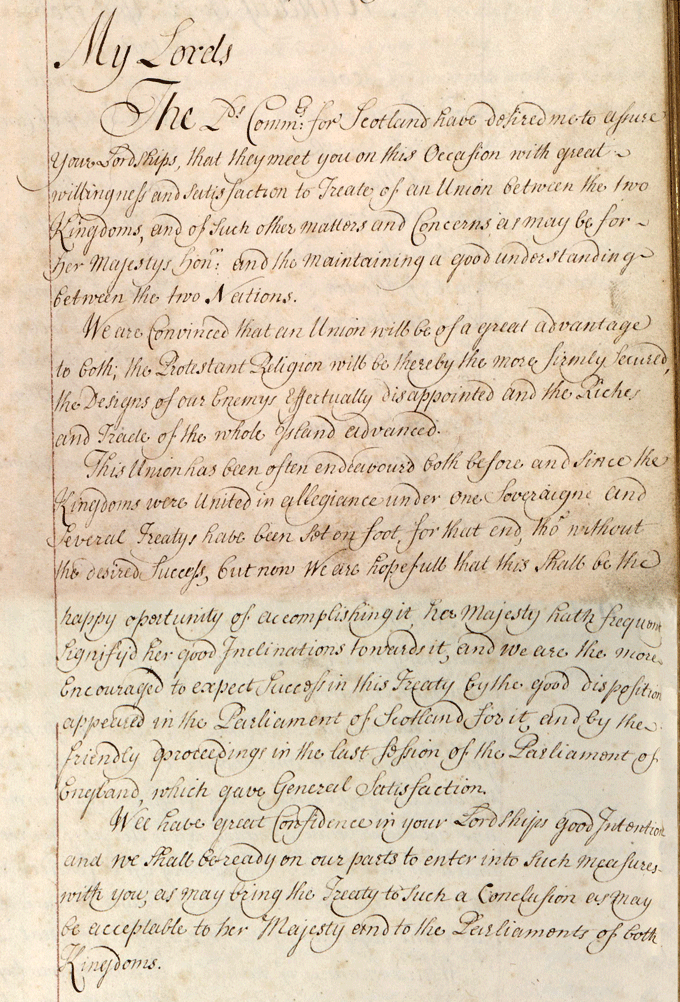
(National Records of Scotland, Journals of the Commissioners for Union, PA18/2 p.10 & p.11) | ||
News of progress with the negotiations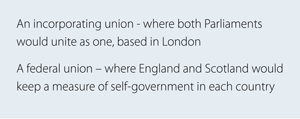
George Lockhart of Carnwath was a Jacobite and the only Scottish commissioner to oppose union. In April 1706, he wrote a letter with news as to how negotiations were progressing. The commissioners, referred to as treaters, had decided to pursue an incorporating rather than a federal union and the Scots insistence on freedom of trade had been granted. …the treaters have agreed so farr, the Scots to be incorporated with England; the English to grant the Scots freedome of trade, under such terms & regulations as be hereafter treated off & judged for the good of both kingdoms… I’m told the Scots fairly proposed a federall Union, but upon the English declaring their aversion to it they let it drop. (National Records of Scotland, Dalhousie papers, GD45/14/336/32) | ||
Public OpinionJames Erskine wrote to his brother, the Earl of Mar, in London in June 1706 with his impression of people’s views in Edinburgh on the question of union. … there seems to be very many who are neither much for the Union nor against it, but are in a kind of
suspense about it & know not what to think. I fancy many of the Ministers are of this sort, some of them seem afraid of it but generally they do not show much anger at it so far as I have heard, the severals of them do. 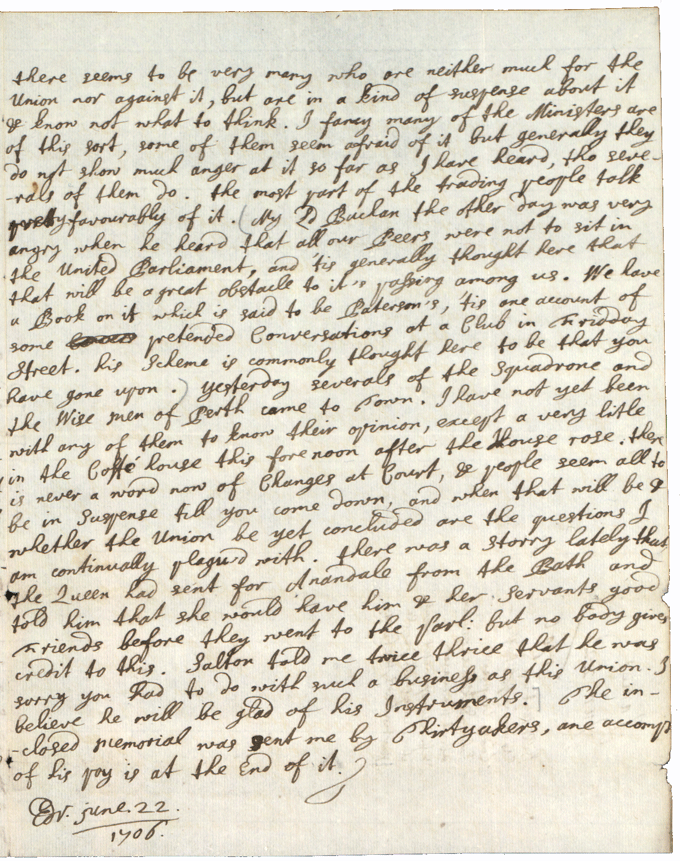
(National Records of Scotland, Mar and Kellie papers, GD124/15/413/3) |
|
|